With the global economy coming off its best performance in six years, it may seem strange to be speculating about the next recession. But when it comes to investing—and policy making—it pays to think ahead. In the following pages, we lay out some potential causes and warning signs of a downturn and why, if one occurs, it could end up lasting for a while.

1 Central Banks Wade Into Historically Dangerous Territory
Since the end of 2015, the Federal Reserve has been bumping up interest rates to keep the economy from overheating. That tactic may be the economy’s undoing.
Almost every U.S. recession since 1970 has had at least one thing in common: a sustained campaign of interest rate hikes by the Fed. As the cost of credit went up, companies and consumers cut borrowing and spending, weakening the world’s largest economy.
The only time in recent history that the U.S. central bank raised rates and didn’t end up triggering an economic downturn was in the mid-1990s, partly because of a subsequent technology driven spurt in productivity. Now the risks of a monetary misstep are rising as the European Central Bank joins the Fed in scaling back stimulus.
2 An Escalating Trade Conflict With Few Winners
The Great Depression that hammered the world economy was fueled, at least in part, by the U.S.’s passage of the Smoot-Hawley Tariff Act in 1930. The law taxed a swath of imports and triggered a global retaliation. Economists differ on the scope of its impact, but what’s certain is that world trade volume sank, and the U.S. remained in a rut until the war boom.
In 2018 the U.S. has been taking a more piecemeal approach to tariffs, but the response by its trade partners has been swift. The European Union, Canada, China, and Mexico have promised tariffs on tens of billions of dollars in U.S. goods.
Economists say a full-blown trade war would hurt confidence and sentiment, eventually slowing growth. If the U.S. raises import costs by 10 percent and the rest of the world retaliates by raising tariffs on U.S. exports, the cost by 2020 would be a dip in global gross domestic product of 0.5 percent, or about $470 billion, Bloomberg Economics estimates.
Diese Geschichte stammt aus der August - September 2018-Ausgabe von Bloomberg Markets.
Starten Sie Ihre 7-tägige kostenlose Testversion von Magzter GOLD, um auf Tausende kuratierte Premium-Storys sowie über 8.000 Zeitschriften und Zeitungen zuzugreifen.
Bereits Abonnent ? Anmelden
Diese Geschichte stammt aus der August - September 2018-Ausgabe von Bloomberg Markets.
Starten Sie Ihre 7-tägige kostenlose Testversion von Magzter GOLD, um auf Tausende kuratierte Premium-Storys sowie über 8.000 Zeitschriften und Zeitungen zuzugreifen.
Bereits Abonnent? Anmelden
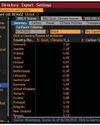
See Which Countries Are Falling Behind On Climate Change
Under the Paris Agreement, 190 countries and the European Union pledged to take steps to hold the global temperature rise to less than 2C (3.6F) from preindustrial levels—and preferably 1.5C.
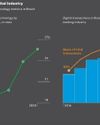
Billionaires Vie for the Future of Brazilian Finance
An escalating battle between two billionaires is upending the financial community in São Paulo, Latin America’s wealthiest city.

Ford Foundation's Darren Walker: ‘We Have to Get Uncomfortable'
DARREN WALKER, 62, disrupted his Wall Street life more than 25 years ago when he left what is now UBS Group AG to volunteer at a school and eventually pursue a career in community development and philanthropy. Since 2013 he’s been at the pinnacle of the philanthropic world as president of the Ford Foundation, created by the family of automaker Henry Ford during the Great Depression to advance human welfare.

Fueling the Ener Transition
I MAY BE BIASED, but some of the most important research and data on the Bloomberg terminal lies in one of its lesser-known functions: {BNEF }
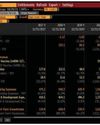
Dig Into Analysts' Estimates for Disruptive Companies
THE PANDEMIC ERA generated a whole wave of disruptive companies as it accelerated the introduction of new products and services in areas including artificial intelligence, digitization, electronic payments, online meeting platforms, and virtual currencies.
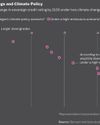
Climate Risks Come for Sovereign Credit
FOR YEARS climate scientists have warned about the ferocious wildfires and hurricanes that are now overwhelming many communities. Today alarms are ringing about a related financial danger: risks lurking within government bonds, the biggest part of the global debt market.

Responsible-Investing Pioneer Lydenberg Says ESG Needs An Upgrade
STEVE LYDENBERG’S passion for social change was inspired by anti-Vietnam War demonstrations, consumer boycotts, and the movement to divest from apartheid South Africa. But he didn’t take to the streets. Instead, Lydenberg turned to the world of finance to help catalyze societal change.

Engine No. 1's Grancio: ‘People Will Appreciate an Economic Argument'
ENGINE NO. 1 sent shock waves across corporate America in May when the fledgling investment firm won a boardroom battle with Exxon Mobil Corp., securing three seats on the oil and gas giant’s board after purchasing only about $40 million of its stock.
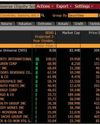
Find Out Which Companies May Ramp Up Payouts After Covid
AS THE PANDEMIC DISRUPTED business last year, many companies cut or suspended dividends. Which will boost their payouts when economies pick up again?
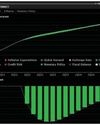
Get Into the Minds of Central Bankers as They Navigate Shocks
HAVE YOU EVER WONDERED how central bankers forecast the impact of shocks on the economy?